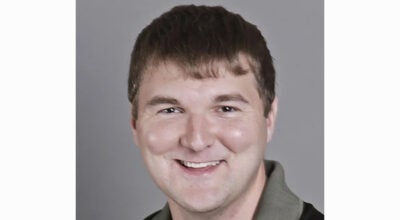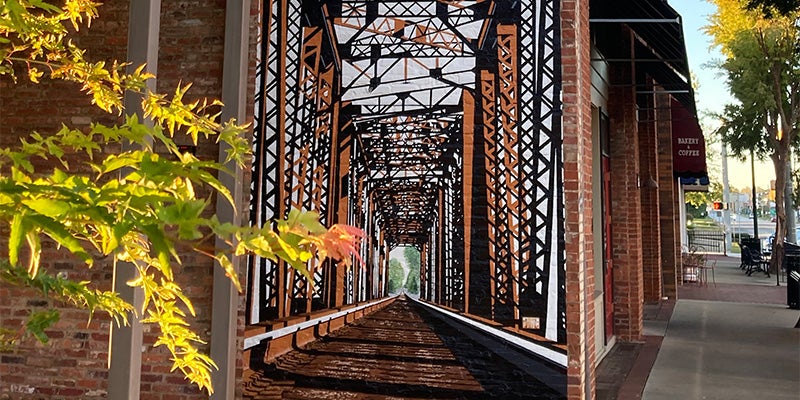Maybe what we need is a new Billy Graham
Published 6:43 am Wednesday, July 1, 2020
|
Getting your Trinity Audio player ready...
|
As a college freshman I began waiting on Newseek magazine to come out so I could turn to the back and read George F. Will’s column. Reading him taught me how to write a lead sentence, how to structure for persuasion, and, I daresay, it provided me with my first real lessons on how to think through the cactus-like political problems that arise in a messy republic such as ours.
Newsweek is a pale shadow of its former self, but Mr. Will—people refer to him as “George”; I cannot—still writes for The Washington Post.
His most recent editorial begins with a lead sentence that again caught my eye. Its shattering honesty struck me as much-needed in a time when foolishness masquerades as heroics, pandering masquerades as sympathy, and reaction masquerades as reasoned response.
His sentence: “A nation’s gravest problems are those it cannot discuss because it dare not state them.” His thesis is astonishing: “A significant part of the intelligentsia cannot think.”
Let’s mull that over for a bit. How can we solve our problems if those best suited to state them don’t dare even state them and, if they do, are not able to think about them?
Asked differently, how can we solve our problems if the shaming class remains ever-ready to call us out if we do anything less than follow the party line?
How can we solve even the simplest problems when our infantile efforts at political correctness preclude any actual thought?
When we find ourselves there, our ship is sailing to rocky shoals where reason seems, if not dead, at least abandoned, cast overboard out of fear.
Our news class reimagines stories rather than reports them. Its goal, it seems, is to make us believe that we are a nation of less-than-decent people who should be cowering alone behind locked doors and wearing facemasks.
Our historians recreate history rather than help us learn from it. Their goal, it seems, is to re-cast those great men who founded this nation into the role of nation-stealers who were only here to rob, pillage, and plunder.
Our politicians hijack any tragedy. Their goal, it seems, is to magnify the tragedy ten-fold, all the while promising us that their solution is the true Balm of Gilead. With a sleight of hand that would make jealous Pen and Teller, they, with sincerity born of years of effort, virtue signal in an effort to keep us from noticing that they were in office when the real reasons behind this “new” problem arose and, having been in a place of responsibility, did nothing.
Will ends his column brilliantly: “The barbarians are not at America’s gate. There is no gate.”
We need a gate, something through which ideas have to pass to be filtered. A way of thinking.
One of my smart friends gave me an Orson Welles quote many years ago. You will remember Orson Welles as the deep-voiced intellectual writer and actor who terrified us with the radio version of War of the Worlds, and who then gave us a movie that is in the top-ten list of every major critic, Citizen Kane. He taught us that “The absence of limitations is the enemy of art.” That is an aphorism of broad application. Those are words of genius.
We seem to have thrown off all limits and, having done so, we are in deep trouble. Limits are what make things worthwhile; we are defined by them. Imagine a cup of water with no cup—it is a mere mess. Imagine a painting with no canvass—it is mere paint. And imagine a country with no framework, no basis, no grounding.
History has taught us that there is no such thing as a vacuum. There are barbarians at our gate who want a vacuum. Have you seen how the political class does nothing while the anarchists still hold an entire section of the city of Seattle?
What I keep hearing is that they want “the people” to be in charge. For better or worse, the people already are.
Our founders, having seen first-hand the perils of a ruling class, gave us an amazing political architecture that ensures that each of us is represented by several levels of people that we and our your neighbors vote into office. Think about that—every elected official is in place because of “the people”.
Maybe Mr. Will—see, I still can’t call him by his Christian name—is correct. Maybe we have no gate.
But maybe we have a gate that is simply under attack; not removed, but in disrepair; not missing, but in need of reinforcing.
Ancient Israel went through much of what we’ve gone through. It peaked with David, was divided in two after Solomon, and within about two hundred years the Assyrians invaded the northern half and deported the people.
The people were later allowed to return and to rebuild their gates. The prophet Ezekiel lived during the exile, but he was given a prophecy about rebuilding the nation, and he wrote:
On your walls, O Jerusalem, I have set watchmen; all the day and all the night they shall never be silent.
Where are our watchmen? I’m not sure we can depend on the intellectuals. I’m not sure we can depend on the politicians. Where should we turn?
Billy Graham died in 2018.
Maybe what we need is a new Billy Graham.



